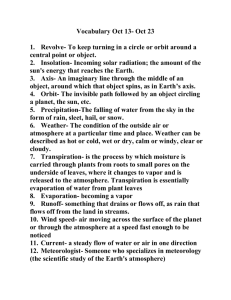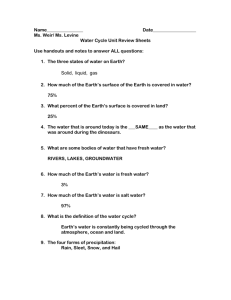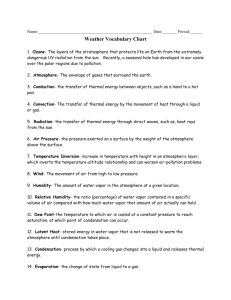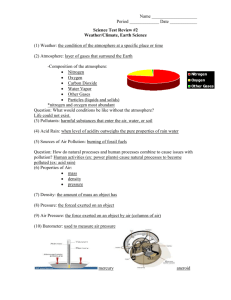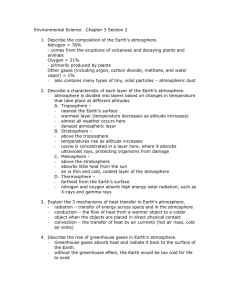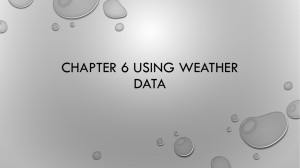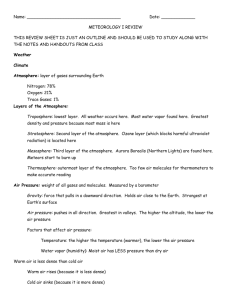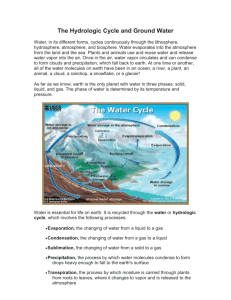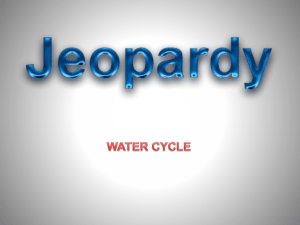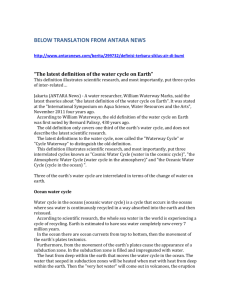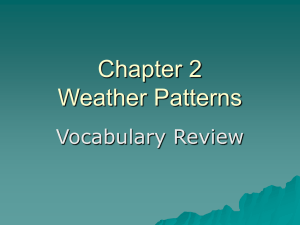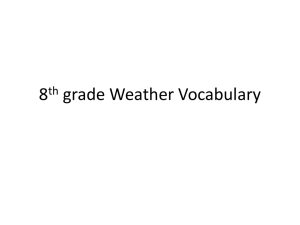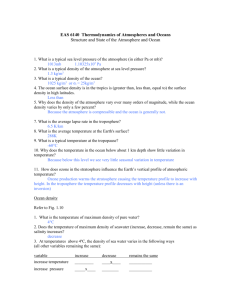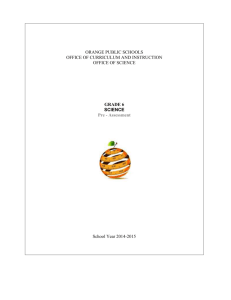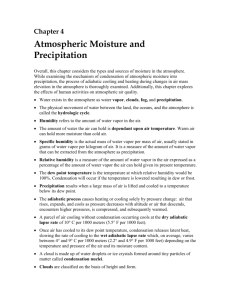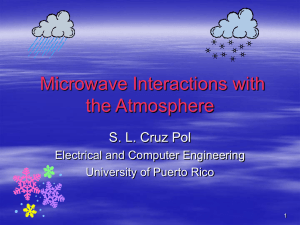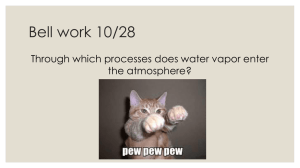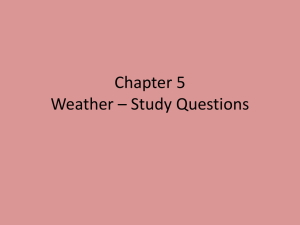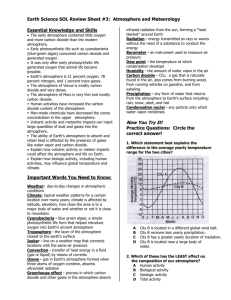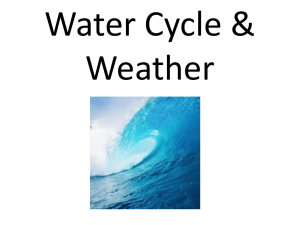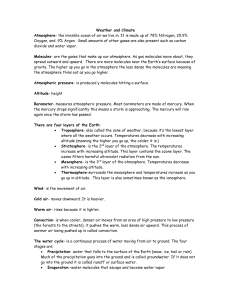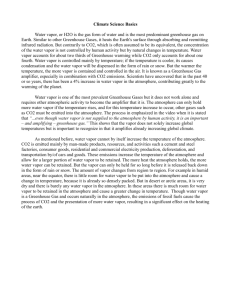The Water Cycle
advertisement
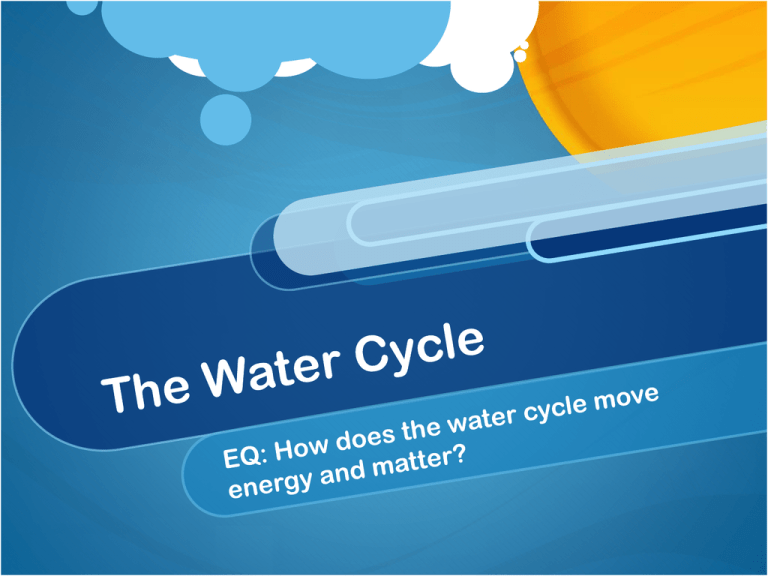
Let’s think…. Look at the background of this slide. What do you see that has an affect on the water cycle or is a part of the water cycle? Write your answer down on your notes page. Discuss with your shoulder partner. Discuss with the class. So what is the water cycle? The water cycle is the movement of water between the atmosphere, land, ocean, and even living things. Water on Earth Water on earth can be found in three different states Liquid water Ice Water vapor Water changes state as energy is absorbed or released. Movement of energy When water absorbs energy from its surroundings it: Melts from solid to liquid Evaporates from liquid to gas Sublimates from solid to gas Think about the sun. we know energy in the form of heat is transferred from an object of higher temperature to the object with a lower temperature. So think about a frozen pond. It absorbs the heat energy from the suns radiation and melts from a solid to a liquid. Movement of energy cont. When water releases energy into its surroundings it: Condenses from gas to liquid(clouds) Freezes from liquid to solid Deposits from gas to solid. Think about a freezing day in the winter. Liquid water will release all of its heat into the air. As this happens the liquid water will change state to a solid.(ice) What are the three states of water? Write the question and answer in your notes. We will go over the question in just a minute. Solid Liquid gas Movement of energy cont. Energy can also be transported by the movement of water from place to place. For example, water that evaporates from the ocean carries energy into the atmosphere. This energy, if the conditions are right, can generate hurricanes. HOW DOES WATER MOVE? Water moves in many ways. Water moves from the ground to the atmosphere. Water moves from the atmosphere to the ground. Water moves across land. From the ground to the atmosphere Water reaches the atmosphere as water vapor in three ways. Evaporation – when liquid water changes into water vapor. Most of the water in the atmosphere comes from the Earth’s oceans, this is because oceans cover most of the earth. Transpiration – the process by which plants release water vapor into the air through stomata. Sublimation – the process in which a solid chages directly into a gas. Let’s collect some water In just a minute we are going to split into groups and go conduct a lab on transpiration. Wait for instructions. But first, who cat tell me what transpiration is again? Right! It is the release of water vapor from a plants stomata into the air. We will go set up our lab and then make observations 5th period. What happens to water in the atmosphere? Condensation Precipitation Cont. Water vapor in the atmosphere mixes with other gases. To leave the atmosphere water vapor must change state to liquid water or solid water. The change of state from a gas (water vapor) to liquid water is called condensation. Condensation occurs if the air that contains water vapor is cooled enough. The vapor condenses on smaller particles such as dust to form clouds, fog and mist. What happens in clouds In clouds, water droplets may collide and stick together to become larger. If a droplet becomes large enough, it falls to earth’s surface as precipitation. examples of precipitation are hail, rain, and snow. The movement of water on land and in oceans. After water falls to earth in flows and circulates all over Earth. On land liquid water flows downhill both on the surface and underground. Water that flows downhill over land is called runoff. As this water is flowing downhill some seeps into the ground in a process called infiltration. Water that makes it underground moves downhill underground as groundwater. Cont. Solid water such as glaciers also move slowly downhill due to gravity. In oceans, winds move ocean water on the surface this is called surface currents. Deep ocean currents are formed by colder water sinking and forcing other water out of its space. Write 2 ways water moves on land. Example answers Runoff Infiltration Groundwater Ice flow Ocean currents
